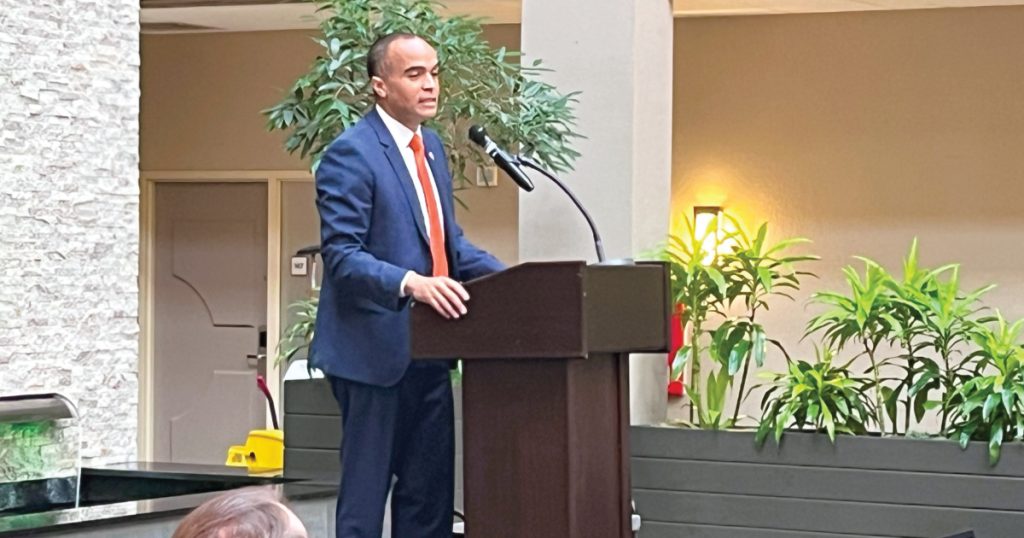OLYMPIA — In recognition of April as Sexual Assault Awareness Month, the Attorney General’s Office today announced the launch of a new reporting website for survivors of sexual assault.

Understanding the many barriers experienced by survivors of sexual violence — crimes that remain the most underreported acts of violence nationwide — the Attorney General’s Office, in partnership with End Violence Against Women International and the statewide Sexual Assault Forensic Examination Best Practices Advisory Group, created a new web site: www.seekthenspeakwa.com. The web site is a tool for survivors of sexual assault and other community members to learn about what to do following a sexual assault, connect to local resources, and allow people to report sexual assaults to law enforcement in a setting they prefer.
“Our work to eliminate the backlog of sexual assault kits statewide means more evidence has been tested and more crimes have been solved,” Attorney General Nick Brown said. “People who experience sexual assault are not alone in Washington. We are launching the Seek Then Speak website to make sure survivors of sexual assault can access local resources and reporting tools as they seek justice.”
The Attorney General’s Office has two criminal justice division units and one policy team dedicated to aiding investigations and prosecutions into allegations of sexual assault. Much of the funding for this work comes through the Legislature’s general fund.
Attorneys and staff that support sexual assault prosecutions include:
Sexual Assault Support Team
Launched in 2017, the Sexual Assault Support Team assisted law enforcement agencies across the state in a yearslong project to test more than 10,000 sexual assault kits that had never been submitted for DNA analysis. The samples collected and added to the national DNA database are critical to identifying perpetrators of unsolved rapes, murders, and other violent crimes — here in Washington and across the country.
The team also uses federal grant funds to help local law enforcement agencies pay for forensic genetic genealogy analysis. This testing has led to new leads, arrests, and convictions in unsolved cases of sexual assault. The team helped solve numerous cold case sexual assaults and homicides — some decades old — inside and outside of Washington state.
More information about the team is here.
Sexually Violent Predator Unit
In 1990, Washington was the first state in the nation to pass a law permitting the involuntary civil commitment of sex offenders after they serve their criminal sentences. The Sexually Violent Predator Unit was founded inside the Attorney General’s Office with the law’s passage.
Washington law allows the Attorney General’s Office to petition for the civil commitment of violent sex offenders who, because of a mental abnormality and/or personality disorder, are proven likely to engage in predatory acts of sexual violence if released. The unit prosecutes sex predator cases for 38 of Washington’s 39 counties, with King County being the exception.
The Legislature this session passed and the governor signed a bipartisan bill, HB 1133, the Attorney General’s Office requested to ensure that upon release from the McNeil Island Special Commitment Center, offenders go through a more thorough supervision process by the Department of Corrections. The department can provide support for reentry, hold people on supervision accountable to their imposed supervision conditions, and collaborate with communities to ensure a successful transition into community.
Sexual Assault Forensic Examinations Best Practices Advisory Group
The Attorney General’s Office also facilitates the statewide Sexual Assault Forensic Examination Best Practices Advisory Group, which the Legislature founded in 2015. It is meant to bring justice to sexual assault survivors, reduce the number of untested sexual assault kits, and to review best practice models for managing all aspects of sexual assault investigations.
The office’s policy division staffs the advisory group and group members include survivors, legislators, community-based advocates, law enforcement, prosecutors, and medical providers. The public can read the advisory group’s most recent report here.
Source: Washington State Attorney General’s Office
Author: Lynnwood Times Staff









